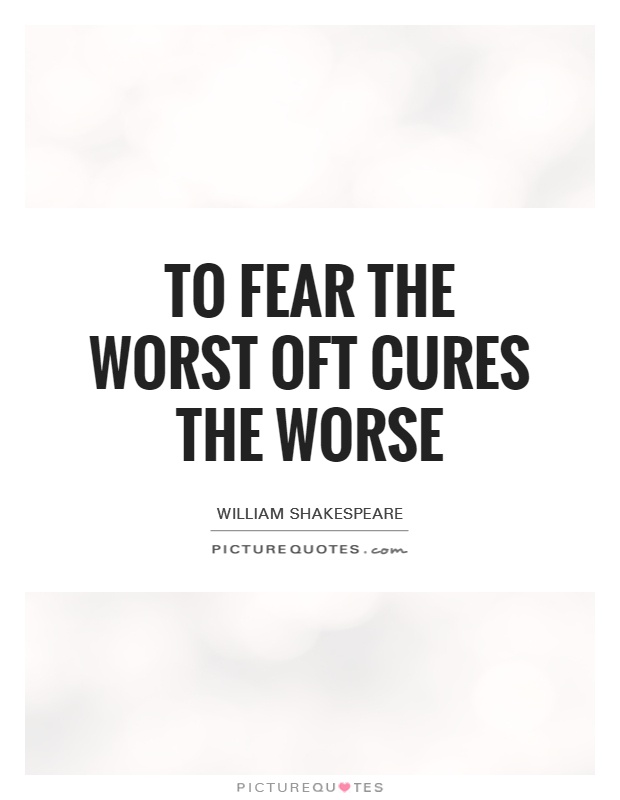To fear the worst oft cures the worse

To fear the worst oft cures the worse
The quote "To fear the worst oft cures the worse" is a profound statement made by William Shakespeare in his play "Hamlet". This line is spoken by the character Queen Gertrude in Act 4, Scene 1, as she reflects on the consequences of worrying too much about the future. In this context, the quote suggests that by constantly anticipating the worst possible outcome, one may inadvertently bring about that very outcome.Shakespeare was a master at exploring the complexities of human nature and the power of the mind. In "Hamlet", the characters are constantly grappling with their own fears and anxieties, which ultimately lead to tragic consequences. Queen Gertrude's words serve as a cautionary reminder that dwelling on negative thoughts can have a detrimental effect on one's mental and emotional well-being.
The idea that fear can manifest into reality is a recurring theme in Shakespeare's works. In "Macbeth", for example, the character Macbeth's relentless ambition and paranoia ultimately lead to his downfall. His fear of losing power drives him to commit heinous acts, which in turn seal his fate. Similarly, in "Othello", the titular character's jealousy and mistrust of his wife Desdemona ultimately lead to her tragic demise.
Shakespeare's exploration of the power of fear and negative thinking is a timeless theme that resonates with audiences to this day. In a world filled with uncertainty and turmoil, it is easy to succumb to fear and anxiety. However, Shakespeare reminds us that dwelling on our fears only serves to amplify them, leading to a self-fulfilling prophecy.
Ultimately, Shakespeare's quote serves as a powerful reminder to focus on the present moment and not let fear dictate our actions. By letting go of our fears and embracing a more positive mindset, we can avoid falling into a cycle of self-destructive behavior. As Queen Gertrude wisely observes, "To fear the worst oft cures the worse" – a lesson that we would all do well to heed in our own lives.












 Friendship Quotes
Friendship Quotes Love Quotes
Love Quotes Life Quotes
Life Quotes Funny Quotes
Funny Quotes Motivational Quotes
Motivational Quotes Inspirational Quotes
Inspirational Quotes